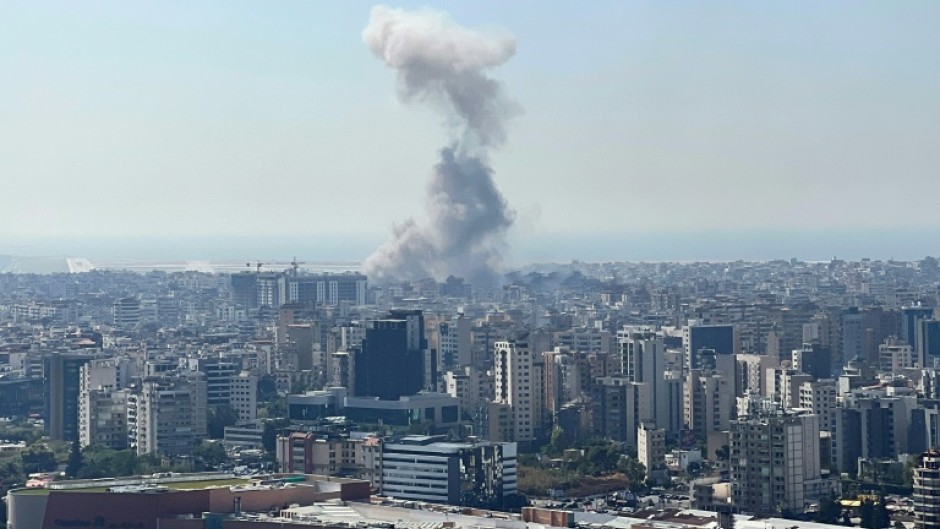Israel ramped up its ground offensive against Hezbollah along the southern section of the Lebanese coast on Tuesday, deploying more troops and urging civilians near the Mediterranean to evacuate.
The Iran-backed Hezbollah group said it fired rockets at the Israeli port city of Haifa, after the Israeli military reported 85 projectiles crossing from Lebanon.
The latest escalation followed Prime Minister Benjamin Netanyahu's vow to fight a "sacred war" until Hezbollah and Hamas are defeated.
Israel expanded operations in Lebanon nearly a year after Hezbollah began exchanging fire in support of its ally, Hamas, following the Palestinian group's deadly attack on Israel on October 7, 2023.
While battling Hamas in Gaza, Israel has vowed to secure its northern border with Lebanon to allow tens of thousands of Israelis displaced by Hezbollah's cross-border fire to return home.
Both Hamas and Hezbollah have pledged no let-up against Israel, and on Tuesday Hezbollah's deputy lader Naim Qassem said the group would make it impossible for Israelis to return to the north.
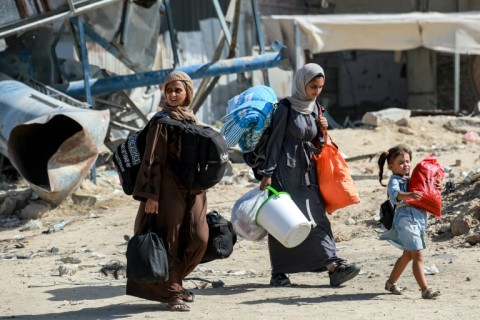
Israel launched a wave of strikes against Hezbollah strongholds in Lebanon on September 23, leaving at least 1,110 people dead since then and forcing more than a million people to flee.
Israeli attacks have mainly targeted Hezbollah strongholds in southern and eastern Lebanon, as well as south Beirut.
While the coast has not been spared, Israel's latest evacuation warning suggests it is extending its offensive northwards.
On its Telegram channel, the Israeli military said its 146th Division began "limited, localised, targeted operational activities" against Hezbollah targets and infrastructure in southwestern Lebanon.
- Hezbollah defiant -
A day earlier, the military had warned people to stay away from the the southern part of Lebanon's Mediterranean coast, with a spokesman saying Israel would "soon operate in the maritime area against Hezbollah's terrorist activities" south of the Al-Awali river.
In Sidon, fishermen stayed ashore and the seafood market was unusually quiet.
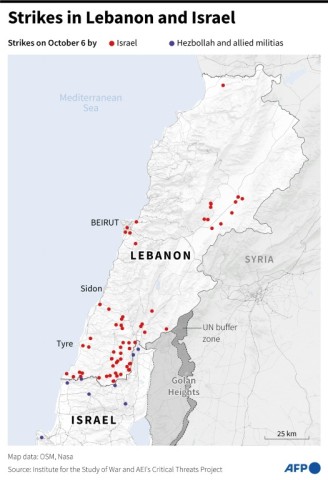
"Fishing was the way we supported our children. If we don't go out to sea, we won't be able to feed ourselves," said fisherman Issam Haboush.
The Israeli military said it hit Hezbollah's south Beirut bastion, where a strike last month killed the militant group's leader Hassan Nasrallah.
Hezbollah later said it repelled Israeli troops who "infiltrated from behind" a UN peacekeepers' position in the southern border village of Labboune.
Hezbollah's deputy leader said despite Israel's "painful" strikes, the group's leadership structure was in order and its military capabilities were "fine".
"Netanyahu says he wants to bring back" the displaced to their homes in northern Israel, Qassem said.
But "we say that many more residents will be forced to flee" their homes, he warned.
Israeli Defence Minister Yoav Gallant later said Hezbollah "is a battered and broken organisation, without significant command and fire capabilities, with a disintegrated leadership following the elimination of Hassan Nasrallah".
The expansion in the fighting came a day after Israelis and people around the world marked the first anniversary of Hamas's October 7 attack on Israel.
For families of the bereaved, as well as relatives of 251 people taken hostage into Gaza, the pain was especially acute.
Of the total number, 97 hostages are still being held, including 34 the Israeli military says are dead.
- 'Sacred mission' -
Hamas's October 7 attack resulted in the deaths of 1,206 people, mostly civilians, according to an AFP tally based on Israeli official figures, which include hostages killed in captivity.
Israel's retaliatory military offensive has killed 41,965 people in Gaza, most them civilians, according to figures from the territory's health ministry that the United Nations has described as reliable.
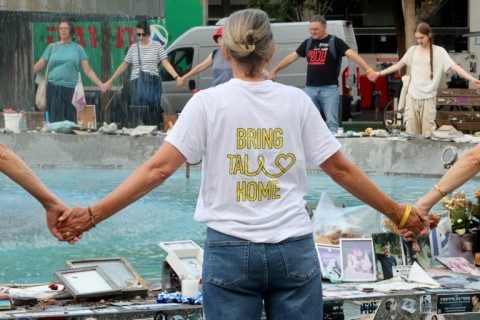
The conflict has since spilt into Lebanon, with Israeli troops battling Hezbollah, while other Iran-backed groups, including Yemen's Huthi rebels, have also stepped in.
As Iran awaits what Israel has said will be retaliation for an Iranian missile barrage last week, Tehran hailed the October 7 attack.
In a pre-recorded television address, Netanyahu vowed not to give up on the "sacred mission" of achieving Israel's war goals.
"As long as the enemy threatens our existence and the peace of our country, we will continue to fight. As long as our hostages are still in Gaza, we will continue to fight," he said.
Weakened but not crushed after a year of war, Hamas was defiant, with Abu Obeida, spokesman for Hamas's armed wing, saying the group would "keep up the fight in a long war of attrition, one that is painful and costly for the enemy".
He also said scores of people taken hostage into Gaza last year were enduring a "very difficult" situation.
A senior Hamas official has acknowledged "several thousand fighters from the movement and other resistance groups died in combat".
- Gaza 'graveyard' -
Netanyahu has vowed to bring home the hostages, but critics in Israel have accused him of obstructing mediation for a truce and hostage-release deal.
Late Monday in Tel Aviv, musicians performed as victims' images flashed on screens at a ceremony attended by families and relatives of those killed and abducted.
"There will be no rehabilitation without the return of the hostages -- all of them," said Nitza Corngold, whose son Tal Shoham was kidnapped.
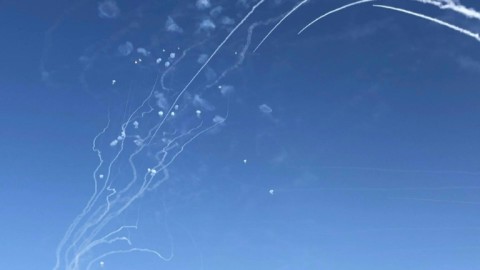
On Tuesday, the territory's civil defence agency said an Israeli strike on a refugee camp in the centre of the Gaza Strip killed at least 17 people.
Philippe Lazzarini, head of the UN agency for Palestinian refugees, UNRWA, said the war had turned Gaza into a "graveyard".
Many in Gaza just want the war to end.
"I have grown old while watching my children hungry, scared, having nightmares and screaming day and night from the sound of the bombing and shells," said Israa Abu Matar, a 26-year-old displaced woman.
By Laure Khoury With Jay Deshmukh In Jerusalem

